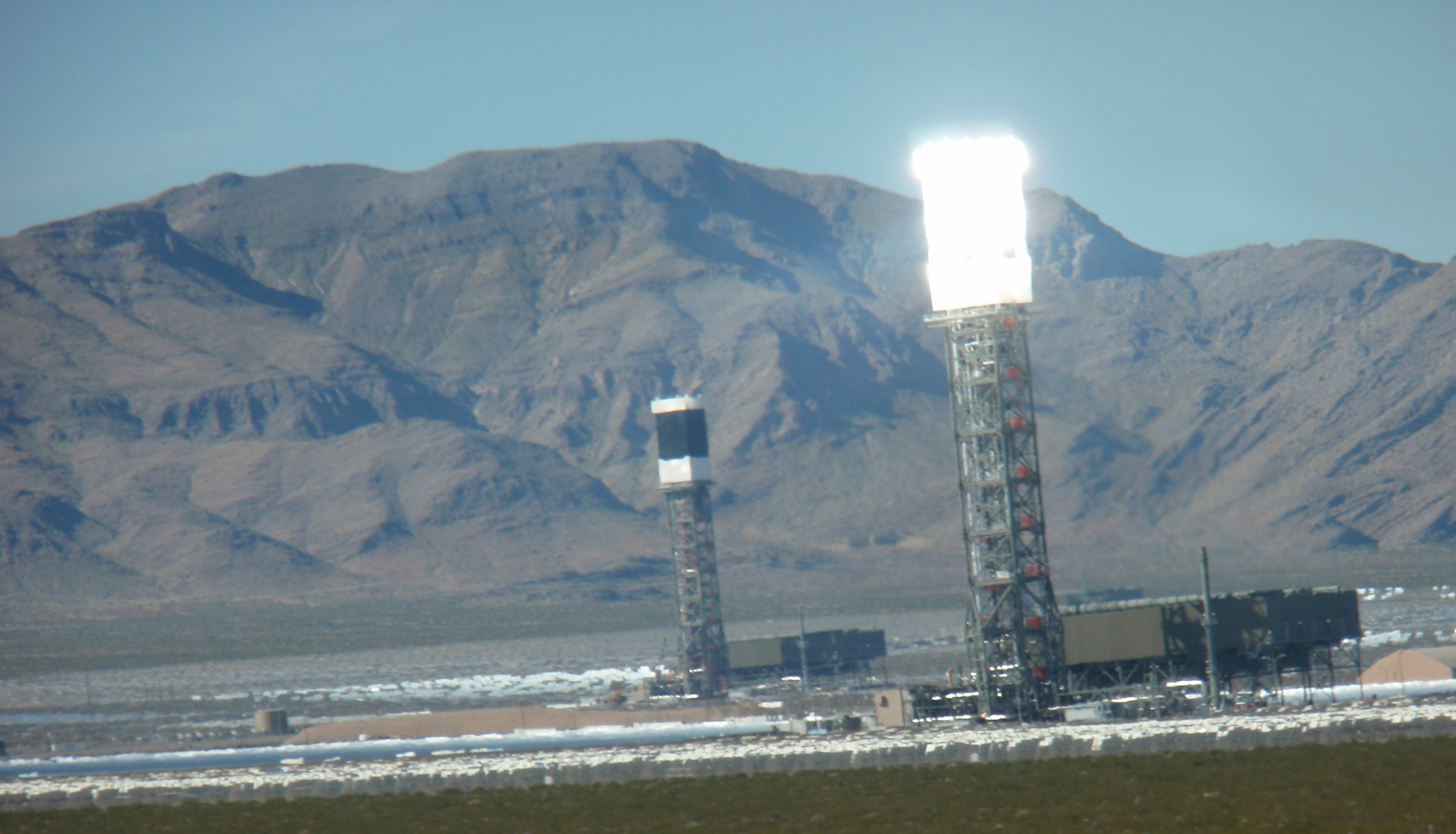
(photo by James Ulvog)
Answer: Birds that fly into the solar flux at the top of the solar collector and ignite, producing a trail of smoke as they fall to the ground. Thus, a streamer.
That is the word used by the people who work at the Ivanpah solar facility, according to an article at ReWire by Chris Clarke: Federal Lab Offers Grim Look at Solar Harm to Wildlife. The article summarizes a few pieces of information from a report from a lab of the U.S. Fish and Wildlife Service. You can read the report for yourself here.
Do you suppose it is a bad sign that people working at a solar farm have a special word to casually describe birds that fall out of the sky after being toasted?
I picture movies about World War II in the air over Europe. Remember those views of an armada of bombers? One of the lumbering B-17s takes a flak burst, starts streaming smoke from an engine on fire, and slowly spirals into the ground. A streamer.
While staff from the FWS Office of Law Enforcement department were on site they saw a “streamer event” every 2 minutes. That could be dust particles or it could be a cloud of insects, as claimed by the staff who work at the facility. OLE did observe birds (plural) fly into the solar flux and incinerate.
Perhaps the California regulators ought to know how many of those thirty incidents per hour are birds and how many are humongous clouds of concentrated dust drifting hundreds of feet in the air before they issue any more wing-toaster permits.
Undercounts of birds and no counts of butterflies
Continue reading “Question: What are “streamers” at a wing-toasting solar facility? (solar #19)”

